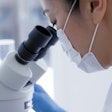Dear LabPulse Member,
As of June 11, nearly 2 million cases of infection with the novel coronavirus have been reported in the U.S., with almost 113,000 deaths, according to the U.S. Centers for Disease Control and Prevention.
So many cases, yet so many unknowns still remain as we proceed with the process of reopening the economy. On the national level, there is still a lot of room for improvement to understand the scale of infection in the U.S. and how it affects particular demographic groups. By August 1, laboratories need to comply with new test reporting guidelines, which call for electronic submission of numerous data points.
With large demonstrations about police brutality ongoing around the U.S., the World Health Organization (WHO) came under fire this week for statements that COVID-19 transmission from asymptomatic infected people is very rare. After confusion took hold and a wave of criticism struck, the WHO clarified that there actually isn't enough evidence to make definitive comments about transmission by people who do not have symptoms.
Potential for fecal-oral transmission of SARS-CoV-2 is also unclear at this time, a team of researchers reported in JAMA Network Open on June 10. A review showed that from 30% to 50% of COVID-positive patients may also have positive fecal swab samples, which confirms that transmission is possible in other ways apart from respiratory droplets. Given all the uncertainty, it's very important to be vigilant and maintain strict hygiene, one co-author stressed to LabPulse.com.
On top of that, concerns about the quality of testing persist. The U.S. Food and Drug Administration has published performance specifications for some antibody tests in a bid to provide independent information about how tests measure up. Meanwhile, the president of Silicon Valley testing company Arrayit has been arrested on charges of fraud related to COVID-19 and allergy testing.
As it becomes clearer that severe cases of COVID-19 are associated with cytokine storm, there is increased interest in interleukin-6 (IL-6) testing, which is starting to become commercially available. This is understandable given the surge in cases, but evidence is lacking, wrote American Association for Clinical Chemistry (AACC) President-Elect David Grenache, PhD, in an opinion piece for LabPulse.com.
Outside of the busy and rapidly evolving world of COVID-19, new studies on the value of genetic testing have been emerging. Polygenic risk scoring may benefit some middle-aged people at borderline risk for cardiovascular events and has potential as a one-time test for those who are younger, a primary prevention study has concluded. So cardiologists shouldn't just be tossing aside such data when presented with patients who have undergone direct-to-consumer testing, lead author Dr. Krishna Aragam said in an interview.
Separately, a multidisciplinary group of experts is calling for broad genetic testing of men with metastatic prostate cancer, which is not commonly done today, to allow them access to a personalized medicine approach and targeted therapies.
Finally, we're pleased to be publishing a new pathology Case Study this week. This time around, we present the history of a 57-year-old woman who experienced acute chest pain after witnessing a trauma. Thanks to Alan Wu, PhD, professor of laboratory medicine at the University of California, San Francisco, for submitting this case.
Do you have an interesting case you'd like to offer? You can contact me at the link below.






